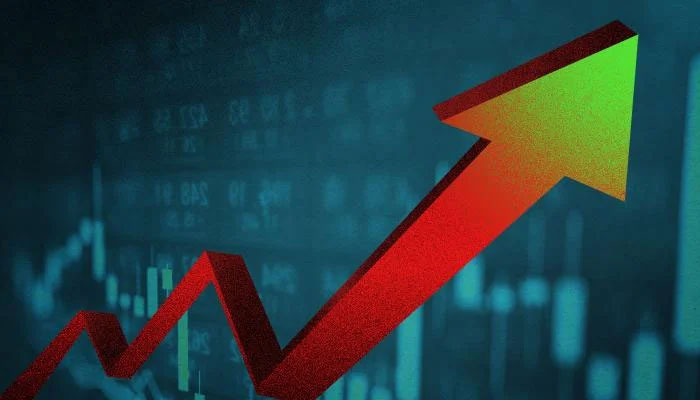Growth hurdles
LAHORE: The normal ingredients of economic growth include political stability, consistency of policies, and transparent governance. Unfortunately, these primary ingredients of growth are absent in Pakistan, diminishing the chances of any growth.
Political stability has eluded Pakistan since the 2013 elections, after which every elected government faced stiff opposition in the streets. The parliamentary proceedings give the impression of a rowdy classroom that has gone out of control of the teacher (speaker in this case). There is disunity in the opposition and in the ruling party. The coalition partners openly oppose the privatization policies of the government and provide ammunition to the opposition for further agitation. All political parties look towards foreign powers for support. The judiciary is not allowed to work freely by both the ruling party and the opposition. The main opposition party does not want to talk with the ruling coalition but prefers to have dialogue with the army, which it claims calls the shots. The chaos thus created has confused the few investors that were planning to invest in this country.
There is so much fuss created on social media by those having no idea about the economy that now every Tom, Dick, and Harry considers himself an economic expert. Each comes up with a unique solution which, when properly analyzed, makes no economic sense. The state has lost its writ; it has no control over fake news, which spreads faster than mainstream media. The confusion thus created has created chaos in society never seen before. Populist policies that are against the principles of the economy are propagated to pollute the minds of the masses. The state, under immense pressure, settles for softer policies that further aggravate our economic problems.
To move forward, we must follow the path that suits our current economic situation. That path would not please either the rich or the poor because the government must squeeze both. But in the end, the state ends up choosing the softer target instead of the stronger one. The poor get the thrashing to the full extent, and the rich are either spared or treated mildly. The major issue in Pakistan is to collect enough revenue to wipe out the fiscal deficit. But the required revenue can never be generated even by doubling the indirect taxes, which are, in fact, a tax on the poor. The solution lies in reducing the indirect taxes and levying much higher direct taxes. But direct taxes would come from the moneyed class, the tax evaders, and influential segments of the economy. Revenues would come when tax exemptions are withdrawn. Government coffers would fill when all unethical commercial practices are stopped. This needs transparency in governance, elimination of discretionary powers, and courage to confront tax evaders of all types.
When we talk about the consistency of policies, we see that where the government is serious, it provides sovereign guarantees to the investors. Many of the clauses of those guarantees are unjust and irrational, but the guarantees are protected by international law. One glaring example is the independent power producers first introduced in our system by the second Benazir government. Every party said the agreements spanning over 25 years are unjust, but the Musharraf regime signed almost the same sovereign guarantee with another set of IPPs, and then the Nawaz government of the 2013 era signed a similar deal with Chinese power companies. All these agreements ensure consistency of policy for over 25 years. The agreements are unjust as they contain few beneficiaries. We must announce long-term policies of at least 10 years' duration through sovereign commitment for all sectors that provide a level playing field to all.
-
 Garrett Morris Raves About His '2 Broke Girls' Co-star Jennifer Coolidge
Garrett Morris Raves About His '2 Broke Girls' Co-star Jennifer Coolidge -
 Winter Olympics 2026: When & Where To Watch The Iconic Ice Dance ?
Winter Olympics 2026: When & Where To Watch The Iconic Ice Dance ? -
 Melissa Joan Hart Reflects On Social Challenges As A Child Actor
Melissa Joan Hart Reflects On Social Challenges As A Child Actor -
 'Gossip Girl' Star Reveals Why She'll Never Return To Acting
'Gossip Girl' Star Reveals Why She'll Never Return To Acting -
 Chicago Child, 8, Dead After 'months Of Abuse, Starvation', Two Arrested
Chicago Child, 8, Dead After 'months Of Abuse, Starvation', Two Arrested -
 Travis Kelce's True Feelings About Taylor Swift's Pal Ryan Reynolds Revealed
Travis Kelce's True Feelings About Taylor Swift's Pal Ryan Reynolds Revealed -
 Michael Keaton Recalls Working With Catherine O'Hara In 'Beetlejuice'
Michael Keaton Recalls Working With Catherine O'Hara In 'Beetlejuice' -
 King Charles, Princess Anne, Prince Edward Still Shield Andrew From Police
King Charles, Princess Anne, Prince Edward Still Shield Andrew From Police -
 Anthropic Targets OpenAI Ads With New Claude Homepage Messaging
Anthropic Targets OpenAI Ads With New Claude Homepage Messaging -
 US Set To Block Chinese Software From Smart And Connected Cars
US Set To Block Chinese Software From Smart And Connected Cars -
 Carmen Electra Says THIS Taught Her Romance
Carmen Electra Says THIS Taught Her Romance -
 Leonardo DiCaprio's Co-star Reflects On His Viral Moment At Golden Globes
Leonardo DiCaprio's Co-star Reflects On His Viral Moment At Golden Globes -
 SpaceX Pivots From Mars Plans To Prioritize 2027 Moon Landing
SpaceX Pivots From Mars Plans To Prioritize 2027 Moon Landing -
 King Charles Still Cares About Meghan Markle
King Charles Still Cares About Meghan Markle -
 J. Cole Brings Back Old-school CD Sales For 'The Fall-Off' Release
J. Cole Brings Back Old-school CD Sales For 'The Fall-Off' Release -
 GTA 6 Built By Hand, Street By Street, Rockstar Confirms Ahead Of Launch
GTA 6 Built By Hand, Street By Street, Rockstar Confirms Ahead Of Launch




